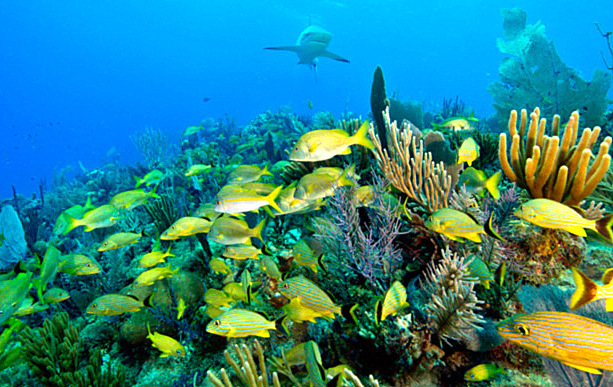Gardens Of The Queen
Jardines de la Reina, Cuba map (credit: Pinterest)
Along the Florida Keys and elsewhere in the Caribbean coral ecosystems are stressed and highly degraded. Overfishing, pollution, elimination of top ocean predators, invasive species, and mass tourist developments have all taken their toll on what were once vibrant marine environments. In Cuba, it is a different story.
One marine reef ecosystem in particular, Jardines de la Reina (the Gardens of the Queen), is a showcase of what can be accomplished by people dedicated to environmental protection. Even with limited gear, money, and other resources, marine management policies based on conservation and restoration have maintained what has been lost elsewhere in the Caribbean. Located 50 miles off the western coast of Cuba, are a series of reefs, shoals, and mangrove estuaries that were declared a nature reserve by the Cubans in 1996. The reefs had avoided the exploitation elsewhere in the region and exhibit ecosystems that once existed around other Caribbean islands.

Jardines de la Reina marine life (credit: Cuban Diving Centers)
Cuba's relative isolation, modest economy, and limited tourist facilities have protected the Queen's Gardens. This has allowed the reefs, mangroves, and all their associated wildlife species to thrive. The reserve now receives some tourist groups, mostly European divers and a few American fly-fisherman, but Cuban political will and the talents of the reserve's ecologists have sustained them. A video by one tour operator shows the diversity of marine life found there.
As Cuba changes and increasing numbers of visitors come to the island, many may wish to visit locations like the Gardens of the Queen. Hopefully the foresight of the people who established and maintain this marine reserve will prevail and provide visitors with insights on what Caribbean marine ecosystem looked like decades ago. The Jardines de la Riena also represent a model for other regional marine managers to established environmental policies that could restore the degraded reefs around their islands to ecological health. WHB